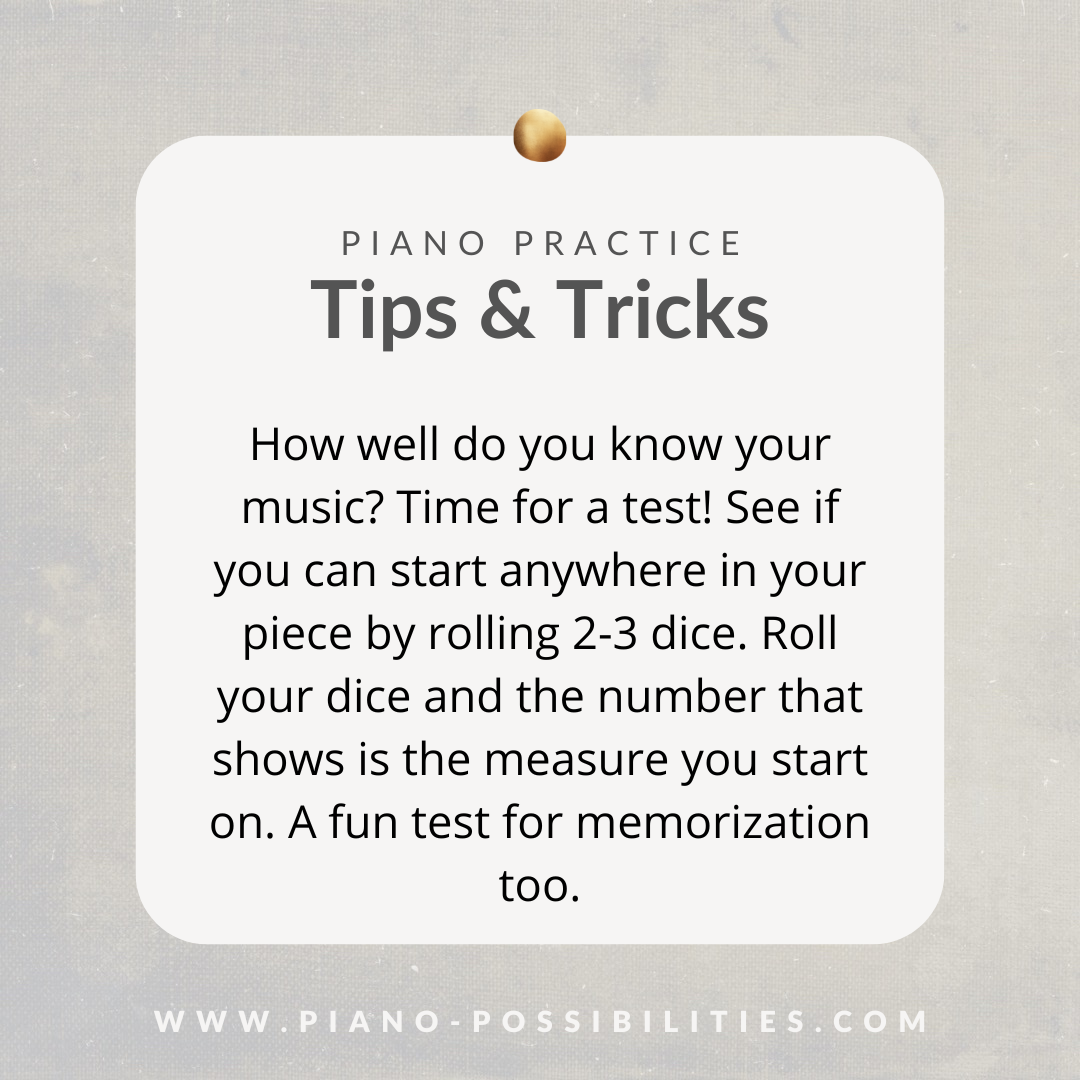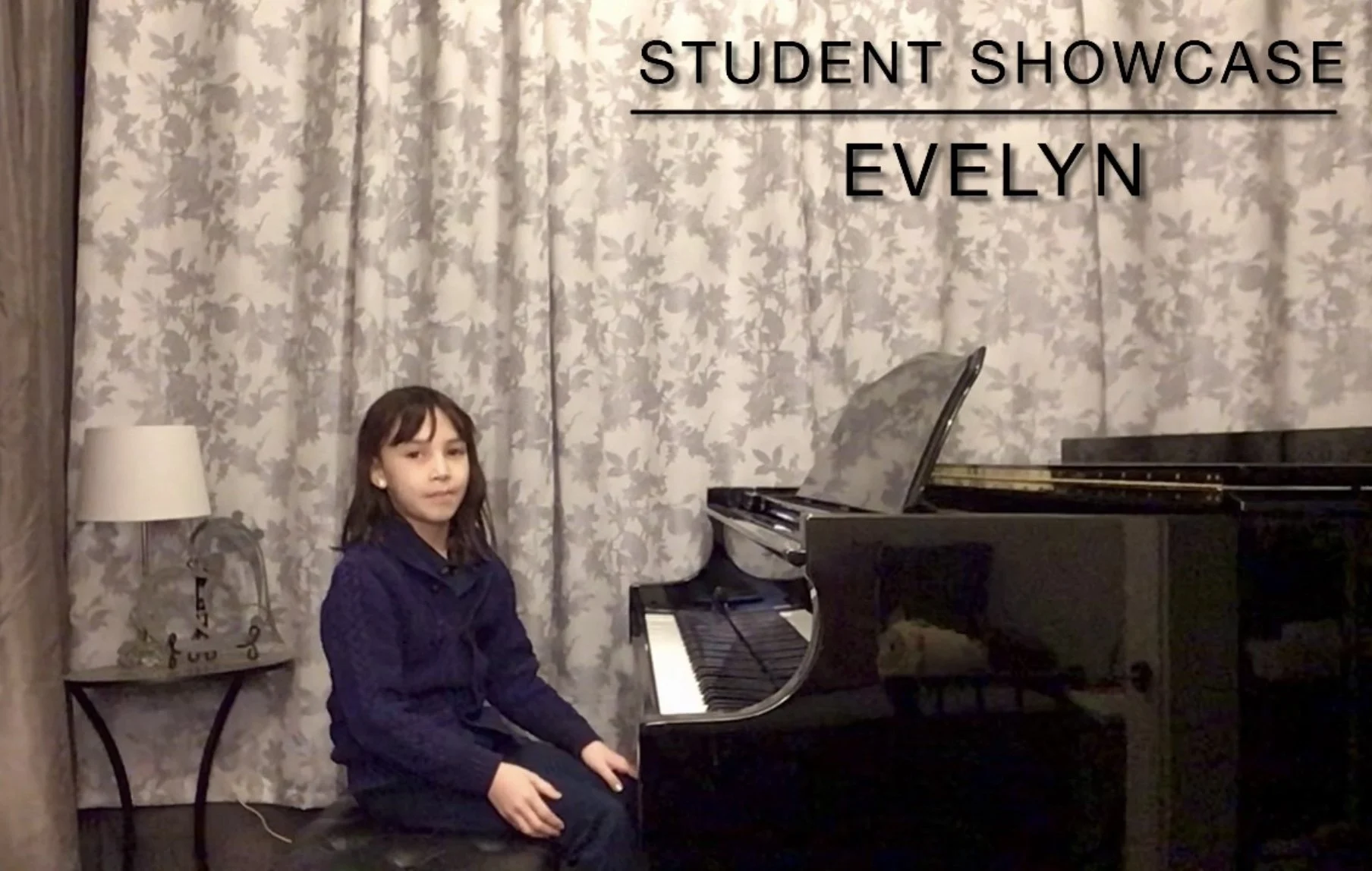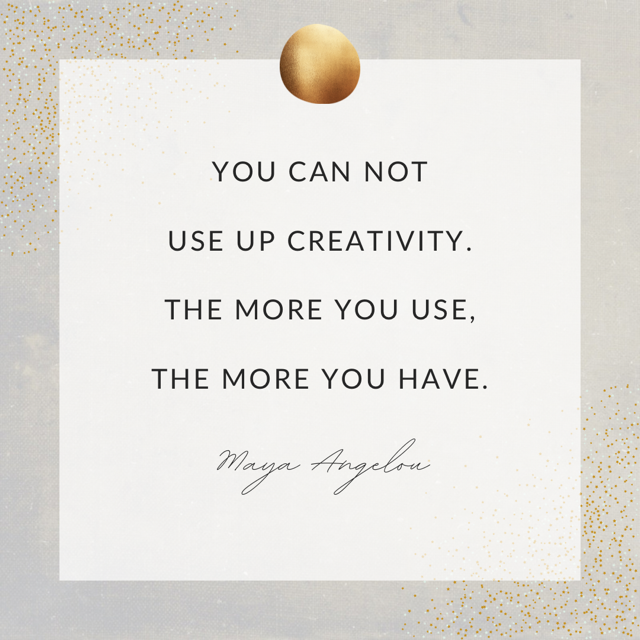Piano Practice Tips & Tricks
Yes, it’s time to make a game out of practice! Rolling dice is a great way to test your abilities at the piano.
As the image says, see if you can start anywhere in your piece by rolling 2-3 dice. Roll your dice and the number that shows is the measure you start on.
When learning a piece of music, it’s not enough to only play it from start to finish. That’s just being able to repeat the tune. To really understand and fully master your music, you should be able to start ANYWHERE. You should also be able to do this from memory.
Yes, this does take more time. However, you will deeply ingrain the skills/techniques acquired from that piece… and those skills will transfer to new repertoire! If you take the time to do this, you will learn new pieces faster and faster. Alright, now go practice!
Looking for something specific? Search below to find previous posts including articles, playlists, inspirational quotes and more!
Archive
- #gopractice 11
- Accompanying 1
- Aretha Franklin 1
- Articles 5
- Awards 3
- Beethoven 1
- Chopin 4
- Christmas 7
- Classical Music 4
- Classical Piano 4
- Coffee 1
- Composers 2
- Composing 1
- Congratulations 3
- Creativity 1
- Debussy 1
- Development 2
- Einstein 1
- Facts 1
- Fanny Mendelssohn-Hensel 1
- Flashback 1
- Games 1
- Gopractice 14
- Grand Piano 1
- Guides 1
- Happy Holidays 10
- Happy New Year 1
- Humor 1
- Inspiration 74
- JS Bach 1
- LEGOs 1
- Liszt 1
- Memories 1
- Merry Christmas 2
- Motivation 30
- Mozart 2
- Music 6
- Music Activities 1
- Music Education 3
- Music History 1
- Music Theory 2
- Music Tips 1
- New Years Resolutions 2
- News 1
- Performances 3
- Piano 15
- Piano Concerto 1
- Piano Lesson 1
- Piano Lessons 7
- Piano Playlist 1
Piano Possibilities Music Studio | Customized Piano Lessons | Oregon City | West Linn | Gladstone
Searching for piano lessons near me? Email Lani today to schedule your piano lessons in Oregon City!
























